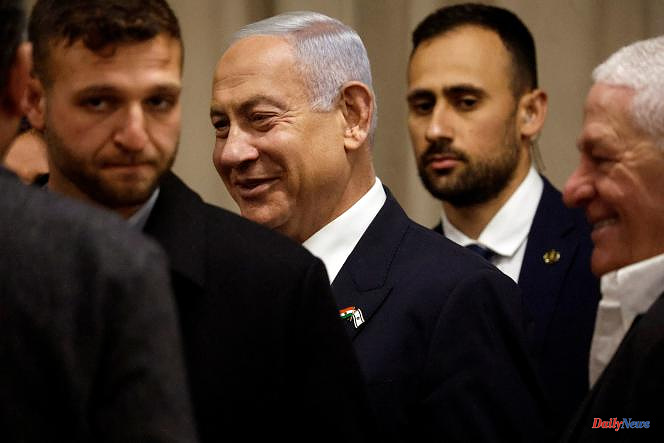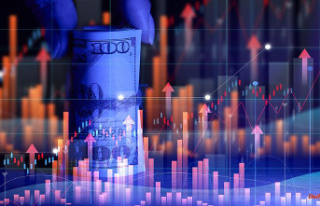Emmanuel Macron receives Israeli Prime Minister Benyamin Netanyahu on Thursday, February 2 in Paris, to discuss in particular the growing tensions with Iran, its involvement in the Ukrainian conflict and the resumption of Israeli-Palestinian violence.
"Prime Minister Benjamin Netanyahu will fly to Paris for a diplomatic visit, where he will meet French President Emmanuel Macron and discuss with him the international effort to stop Iran's nuclear program and ways to strengthen and 'expand the Abraham Accords,' the Israeli embassy in Paris said.
"The President of the Republic will once again express France's solidarity with Israel in the face of terrorism," said the Elysée. In a context of growing tensions, the President of the Republic will recall the need for everyone to avoid measures likely to fuel the cycle of violence, and will express his availability to contribute to the resumption of dialogue between the Palestinians and the Israelis. . The two leaders will see each other for dinner, but no public speaking is planned.
On Thursday, January 26, an Israeli raid in the Jenin refugee camp in the West Bank left ten dead, an unprecedented toll for several years in the West Bank. Seven civilians were also killed Friday in a Palestinian attack in East Jerusalem, an area occupied and annexed by Israel. On Saturday, a Palestinian injured two Israelis, a father and his son, also in East Jerusalem, before being injured and arrested. In the West Bank, Israeli guards killed a Palestinian on Sunday and Israeli forces killed a Palestinian on Monday.
The Israeli government wants to focus the Prime Minister's visit on Iran, hoping in particular that its growing involvement in the war between Russia and Ukraine - the mullahs' regime is a major supplier of equipment to Russia - will push Westerners to increase the pressure on Tehran.
Contestation
Paris considers it necessary to conduct a policy of "very firmness" with regard to Iran, because its nuclear program remains "dangerous" and that it is involved in the war in Ukraine, according to a diplomatic source.
Iran has become an increasingly important player in the conflict, which it is fueling by supplying numerous drones used by Moscow to strike Ukrainian infrastructure, while nuclear negotiations have stalled and several foreigners considered to be hostages by Western capitals are held there.
In the context of this growing Iranian involvement in the war in Ukraine, Binyamin Netanyahu announced on Wednesday what seems to be a significant change in posture, saying he is now ready to consider supplying arms to Ukraine. Until now, the State of Israel had taken care to remain neutral, in particular because of the presence of the Russian army deployed in Syria.
Israel must in particular take into account the presence in this neighboring country of Russian anti-aircraft systems. So far, the Israeli air force has been able to conduct operations there without being targeted by these systems.
In addition to this diplomatic component, Mr. Netanyahu will “meet leading businessmen in France in the financial field and hold a meeting with leaders of the Jewish community,” according to the embassy. He will leave France on Saturday evening.
Having come to power in December at the head of a coalition combining right-wing, far-right and ultra-Orthodox Jewish parties, and whose critics fear an anti-democratic drift, Mr. Netanyahu's government is facing opposition from certain sectors of the Israeli society, including the financial sector.
Some companies have said they are ready to leave Israel, believing that the planned judicial reform would create instability affecting their activity. The Prime Minister notably met last week with the heads of the big banks to try to reassure them.












